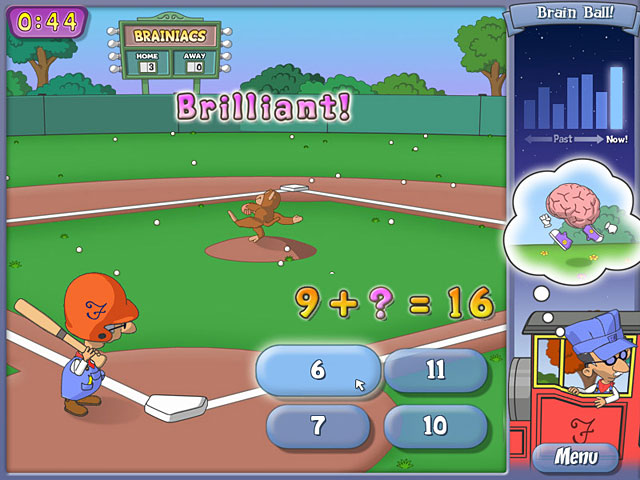Total Brain Breakfast: Intensify Your Mental Focus
 WebMD, a respected source of information on health has a short slide show on Brain Foods that Help You Concentrate. While the slides cover topics already found in the Next Brain Blog including – caffeine, chocolate, fish, nuts, berries, avocados, whole grains and selected supplements – it is a great summary.
WebMD, a respected source of information on health has a short slide show on Brain Foods that Help You Concentrate. While the slides cover topics already found in the Next Brain Blog including – caffeine, chocolate, fish, nuts, berries, avocados, whole grains and selected supplements – it is a great summary.
It also talks about how they can work in combination. For example slide 11, Get Ready for a Big Day, states:
“Want to power up your ability to concentrate? Start with a meal of 100% fruit juice, a whole grain bagel with salmon, and a cup of coffee.”
Might not be your favorite combination for the total brain breakfast but there are many other options.
Interested to hear from readers that have customized one or more meal to achieve maximum brain function or cognitive performance. What it your total brain meal?
Categories: Diet, Lifestyle, Mental Focus Tags:
Slow But Steady to Win Brain Health Race?
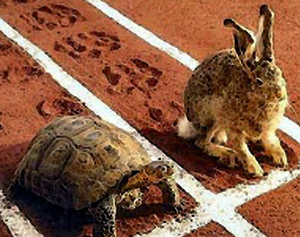 Making small changes to our daily activities can make a big difference over the years. Often called lifestyle tuning, this approach can be applied to build brain health and improve your cognitive performance. We have covered many tunning techniques on the Next Brain Blog.
Making small changes to our daily activities can make a big difference over the years. Often called lifestyle tuning, this approach can be applied to build brain health and improve your cognitive performance. We have covered many tunning techniques on the Next Brain Blog.
Posit Science, a leader in brain training software, offers 14 Brain Training Tips. They range in change magnitude from walking on rough surfaces to eating fish and learning to play a musical instrument. Here are the ones that are easy-to-do lifestyle tuneups:
4. Exercise Your Peripheral Vision
13. Walk on a Cobblestone Path
Although we don’t have research that proves lifestyle tuneups produce lasting improvements in brain health and cognitive performance, we do have such research for cardiovascular health. For example, taking stairs instead of an escalator or a 10 minute walk does in fact improve heart health. My bet is that analogous lifestyle tuneups for the brain will improve cognitive performance.
Interested to hear about your techniques for taking a slow but steady approach to the changes needed to improve brain function and cognitive performance
Categories: Diet, Lifestyle, Mental Focus, Perception Tags: brain training, cognitive fitness, exercise
Our Brains Are Optimized for Ancient Ways
 Found an interesting blog post that reviewed five recent scientific studies on protein SIRT1 and its possible connection to improved brain function and cognitive performance. The post includes 10 steps to enhanced brainpower many of which we have covered in the Next Brain blog. In paraphrased form these include:
Found an interesting blog post that reviewed five recent scientific studies on protein SIRT1 and its possible connection to improved brain function and cognitive performance. The post includes 10 steps to enhanced brainpower many of which we have covered in the Next Brain blog. In paraphrased form these include:
- Eat and exercise like a wild ancient human
- Take supplements including fish oil, vitamin D and resveratrol.
- Eat blueberries, drink coffee or tea and limit alcohol
- Be an aggressive and continious learn
- Get plenty of sleep
The conclusion is:
“The research basically says: to enhance your brain, you should adjust your lifestyle, diet, and use of compounds or drugs to increase levels of SIRT1 in the brain. The target: an enhanced mind — as alert as those of our ancestors — that thinks more clearly, stays smart, and learns longer.”
The underlying theme here is that the lifestyle and diet of wild ancient humans is the context in which much of our brain development occurred. This means our brains are naturally optimized to work best under those conditions. As conditions are radically different today, reproducing the ancient ways as describe above is one strategy for enhancing cognitive performance.
Categories: Ancient Ways, Memory and Learning, Mental Focus Tags: vitamins
Mental Training Techniques of Top Athletes
Top athletes are not only physically fit but also mentally fit. They use mental training routines just as they use physical training routines. Fortunately, many if not all of their mental training routines can be used to improve brain function or enhance cognitive performance in non-sports related contexts.
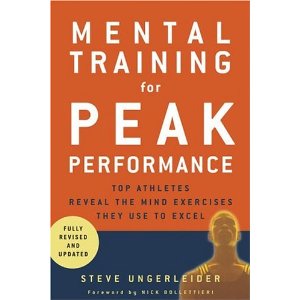 A great resource for exploring these techniques is Steven Ungerleider’s book, Mental Training for Peak Performance. He offers an introduction to mental training and then covers specific techniques including affirmations, self-talk, breathing, mediation, mental snapshots, guided-imagery, visual rehearsal and even dreams. We have covered many of these techniques in the Next Brain blog, but Dr. Ungerleider brings refinements and deeper insights to nearly all of them.
A great resource for exploring these techniques is Steven Ungerleider’s book, Mental Training for Peak Performance. He offers an introduction to mental training and then covers specific techniques including affirmations, self-talk, breathing, mediation, mental snapshots, guided-imagery, visual rehearsal and even dreams. We have covered many of these techniques in the Next Brain blog, but Dr. Ungerleider brings refinements and deeper insights to nearly all of them.
Take for example the use of guided-imagery. This is a technique involves forming vivid mental images and controlling them to practice “in your head” and manage anxiety and performance stress. Ungerleider’s approach stresses understanding how the individual experiences the image – sight, hearing, touch and feel. Other approaches I’ve seen assume we experience images with sight only. He has even developed a Sport Imagery Questionnaire (pgs. 56-57) to help you figure out how you experience images. You assess yourself in four different situations – practicing alone, with others, watching a teammate and competing – and rate how you experience images (1-5) in terms visual (what you saw), auditory (what you heard), kinesthetic (what you felt) and mood (how you felt). You use the results to customize routines for generating and controlling vivid imagery.
I completed the questionnaire and was surprised to find that mood played a key role in how I experience mental imagery. I used this to change my approach to guided-imagery with some good results.
Interested to hear from readers about their experience using the mental training techniques inspired by sports.
Categories: Books, Manage Emotions, Memory and Learning, Mental Focus, Perception, Training Tags: sports
Mindless Reading Lowers Cognitive Performance – How Do We Stop?
 There are two kinds of mindless reading. The first kind, often associated with guilty pleasure, involves reading something just for fun. There is no expectation that you will learn or grow. A trashy novel is a good example. The second kind of mindless reading involves moving your eyes across and down a page while you are thinking about something else or otherwise not paying attention. You are not being mindful of the written word. Re-reading the same paragraph over and over or getting to the bottom of a page and not remembering a single word are typical examples.
There are two kinds of mindless reading. The first kind, often associated with guilty pleasure, involves reading something just for fun. There is no expectation that you will learn or grow. A trashy novel is a good example. The second kind of mindless reading involves moving your eyes across and down a page while you are thinking about something else or otherwise not paying attention. You are not being mindful of the written word. Re-reading the same paragraph over and over or getting to the bottom of a page and not remembering a single word are typical examples.
According to researchers we often zone out, even when we are trying to read for understanding or receive prompts to pay attention. This suggests:
For those interested in improving cognitive performance, mindless reading presents a major opportunity.
But how can we keep from reading mindlessly when we don’t want to? I’ve spent sometime researching that question and have come up empty. Despite its prevalence there has been very little scientific research done on mindless reading. What has been done shows that it lowers the cognitive performance of reading and lowers test scores.
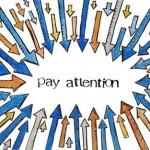 In studies subjects that experience mindless reading have reported being distracted by hunger, thirst, sleepiness, boredom and sexual desire. Making sure you are rested, well fed and the rest to avoid mindless reading makes good common sense. But what else can be done?
In studies subjects that experience mindless reading have reported being distracted by hunger, thirst, sleepiness, boredom and sexual desire. Making sure you are rested, well fed and the rest to avoid mindless reading makes good common sense. But what else can be done?
Very interested to hear from readers about specific techniques for decreasing the frequency of unwanted mindless reading.
Categories: Memory and Learning, Mental Focus Tags: speed reading
Music Training Pumps Up Your Brain
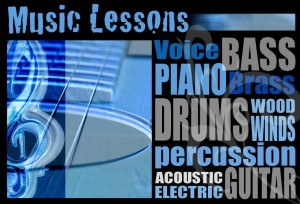 New research from Northwestern University, Taking Music Seriously, confirms that learning to play a musical instrument is a powerful way to improve general brain function and cognitive performance. To quote:
New research from Northwestern University, Taking Music Seriously, confirms that learning to play a musical instrument is a powerful way to improve general brain function and cognitive performance. To quote:
“Now a data-driven review by Northwestern University researchers that will be published July 20 in Nature Reviews Neuroscience pulls together converging research from the scientific literature linking musical training to learning that spills over to skills including language, speech, memory, attention and even vocal emotion. The science covered comes from labs all over the world, from scientists of varying scientific philosophies, using a wide range of research methods.”
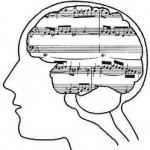 It seems musical training enhances neuroplasticity and primes the brain for improved performance in a variety of communication and learning tasks. These appear to be life-long and life-wide (outside the context of music) effects.
It seems musical training enhances neuroplasticity and primes the brain for improved performance in a variety of communication and learning tasks. These appear to be life-long and life-wide (outside the context of music) effects.
Interested to hear from readers that use musical training for brain fitness and and cognitive enhancement.
Categories: Memory and Learning, Mental Focus, Music and Audio, Training Tags:
The Amazing Brain Train
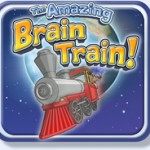 A playful way to do a little brain training using games: “Fueled by your mental energy, Professor Fizzwizzle’s Brain Train will take you on a brain-boosting adventure!
A playful way to do a little brain training using games: “Fueled by your mental energy, Professor Fizzwizzle’s Brain Train will take you on a brain-boosting adventure!
Put your mighty mind to the test and see how far you can go!”
15 online games for training your brain in planning, memory, spatial reasoning and numbers all for $6.99 or free for 24-hours. For a quick look check out this video.
Categories: Child, Memory and Learning, Mental Focus, Perception, Software Tags: games
Is a Wandering Mind More Effective?
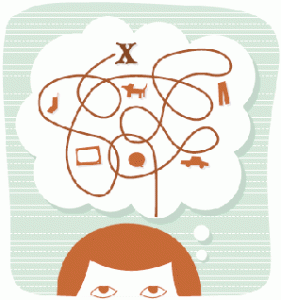 About a third of the time we are awake our mind is wandering. We are not focused on the topic at hand, we are zoning out. Not really in a full day dream just having thoughts unrelated to the tasks we are trying to do. We slip in and out of focus rapidly and often. It is worse if we are drinking or are having a craving.
About a third of the time we are awake our mind is wandering. We are not focused on the topic at hand, we are zoning out. Not really in a full day dream just having thoughts unrelated to the tasks we are trying to do. We slip in and out of focus rapidly and often. It is worse if we are drinking or are having a craving.
For those interested in improving cognitive performance and brain function it seems that mind wandering presents a major opportunity.
Even 10% less wandering during the day would mean 30 minutes or so more mental time on task! This puts a premium on using techniques, such as mindfulness, that naturally nudge the wandering mind back on task.
 Unfortunately the case is not that clear. There has been research that suggests a wandering mind is critical to enhance creativity. More recent research even suggests it may improve decision-making. Point being that our mind likely wanders for a reason and that reason is likely essential for high performance.
Unfortunately the case is not that clear. There has been research that suggests a wandering mind is critical to enhance creativity. More recent research even suggests it may improve decision-making. Point being that our mind likely wanders for a reason and that reason is likely essential for high performance.
For a good (and short) article on this topic check out Discovering the Virtues of the Wandering Mind. Interested to hear from readers on their view. Especially interested in any techniques for minimizing it or getting better cognitive performance from it.
Categories: Mental Focus Tags: creativity, mindfulness
Not All Naps Have Brain Boosting Effects
 Taking naps has been a hot topic for improving learning, memory and mental alertness for sometime. We have covered it several times in the Next Brain Blog. However, it does not always work. Turns out there is a knack to getting the brain boosting effects from napping. Psychology Today has an excellent article, Ultimate Napping: A How-To Guide, that provides specific guidelines. Some examples:
Taking naps has been a hot topic for improving learning, memory and mental alertness for sometime. We have covered it several times in the Next Brain Blog. However, it does not always work. Turns out there is a knack to getting the brain boosting effects from napping. Psychology Today has an excellent article, Ultimate Napping: A How-To Guide, that provides specific guidelines. Some examples:
- For younger nappers 10-20 minutes is ideal. Sleeping longer will leave you groggy not mentally alert.
- Pick your time, place and be sure to have sleeping gear – pillow, blanket and teddy bear.
- Drinking a caffeinated beverage right before you nap is a great way to wake up fully alert .
- Don’t stress if you don’t fully fall asleep. Just resting can rejuvenate.
Most of the suggestion fit my personal experience well. I have used napping for years. This illustrates that the techniques we use to improve brain function and cognitive performance are often very simple, but applying them effectively can be a bit tricky.
Very interested to hear from readers about specific napping tricks-of-trade that improve cognitive performance.
Categories: Lifestyle, Memory and Learning, Mental Focus Tags:
Develop Your MOT – Multiple Object Tracking Skills
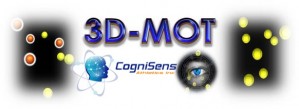 CogniSens Athletics is a small company dedicated to translating the latest neurophysics into tools for improving the cognitive performance of athletes. They just announced the release of 3D-MOT a three dimensional (3D) immersive training environment for developing the cognitive skills needed for multiple object tracking (MOT). It uses a computer and specialized goggles to teach you how to visually track more than one moving object at a time. A key cognitive skill in sports. To quote a news release:
CogniSens Athletics is a small company dedicated to translating the latest neurophysics into tools for improving the cognitive performance of athletes. They just announced the release of 3D-MOT a three dimensional (3D) immersive training environment for developing the cognitive skills needed for multiple object tracking (MOT). It uses a computer and specialized goggles to teach you how to visually track more than one moving object at a time. A key cognitive skill in sports. To quote a news release:
“D-MOT is a scientifically designed system for improving perceptual tracking skills by expanding an athlete’s capacity to absorb and process complex movement information. … players have shown that just one hour of distributed 3D-MOT stimulation yielded an average of over 50% increase in capacity to track at speed, with greater increases being realized with extended training. ”
 Most of us won’t have the opportunity to use such technology but I wonder if there is not more generally available options that produce some of the same effects. My guess is that some video games are an example.
Most of us won’t have the opportunity to use such technology but I wonder if there is not more generally available options that produce some of the same effects. My guess is that some video games are an example.
Consider Geometry Wars. Definitely need to be able to track multiple moving objects at once to get anywhere with this game. Indeed, in playing it, I have had to learn to defocus my eyes to increase my score. Most likely a sign that I am learning a new perceptual skill.
I am interested to hear from readers about examples of video games or other methods that can help us develop MOT (multiple object tracking) skills.
Categories: Mental Focus, Perception, Software, Training Tags: cognitive fitness, games, processing speed, sports

